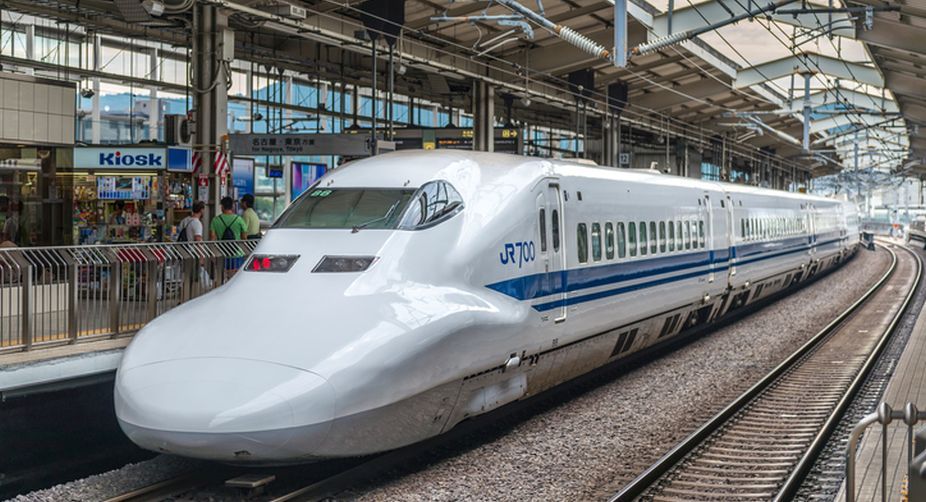India reminds world about challenges posed by climate change
India has reminded the global community how the impact of climate change has increasingly become evident in the form of one disaster or another.

Representational image (Photo: Getty Images)
With an ambitious China threatening its supremacy in the export of super-fast train systems, Japan appears keen to sell its ‘Shinkansen’ (Bullet Train) technology to India, claiming it would lead to an enormous improvement in the safety standards and an upgrade of the service level of the Indian Railways.
Senior Japanese functionaries believe that comprehensive cooperation between India and Japan to improve the conventional railway network is the need of the hour for India so as to establish a high quality infrastructure, serving a majority of the Indian people.
After years of negotiations, Japan earned the contract for the Mumbai-Ahmedabad high-speed rail project, which was jointly inaugurated last month by Prime Minister Narendra Modi and his Japanese counterpart Shinzo Abe during the latter’s visit to India for the annual India-Japan summit.
Advertisement
Both India and Japan are of the view that the Mumbai-Ahmedabad project will create a new industrial cluster, expanding employment opportunities for the newly-skilled Indian workforce with knowledge of state-of-the-art technology of high-speed railways.
Japan’s ambition is to take its high-speed rail technology to different parts of the world, particularly in Asia. However, China has, in recent years, become a strong competitor for the country. In fact, China outsmarted Japan in 2015 when it bagged a high-speed rail project in Indonesia that had been considered by Tokyo to be in its kitty.
China too is hopeful of securing a slice of India’s massive railways expansion projects despite the competition it faces from Japan. But China is in a disadvantageous position in view of the growing unease in Sino-Indian ties following the recent military stand-off at Doklam. The beneficiary will obviously be Japan, given its strong ties with India and the reputation it enjoys among Indians.
The Japanese claim that when they planned to introduce ‘Shinkansen’ system in the 1960s, the railways was considered a declining industry in the country, facing a stiff challenge from the civil aviation and automobile industry. However, the ‘Shinkansen’ system played a vital role in reviving the railway industry and in bringing constant innovation to railway technologies. ‘Shinkansen’ not only proved to be economically successful but also restored the national pride.
The Japanese proudly claim that the ‘Shinkansen’ system has maintained a zero-casualty record till now. Even during the Great East Japan earthquake with a magnitude of 9.0, not a single ‘Shinkansen’ train derailed, thanks to the quake detection system of the technology.
‘Shinkansen’s’ average delay time, they say, is one minute. The train turns around at the final terminal station within 12 minutes, including passenger alighting and boarding.
Advertisement